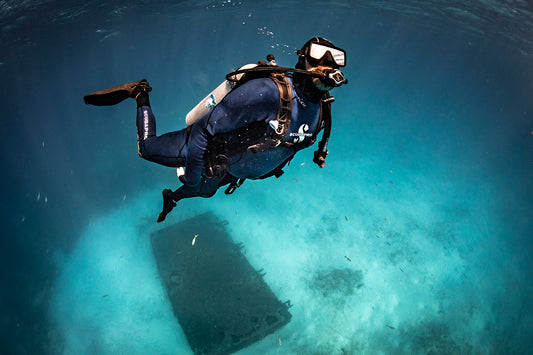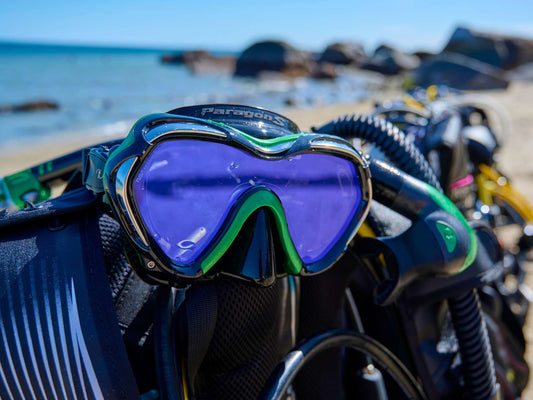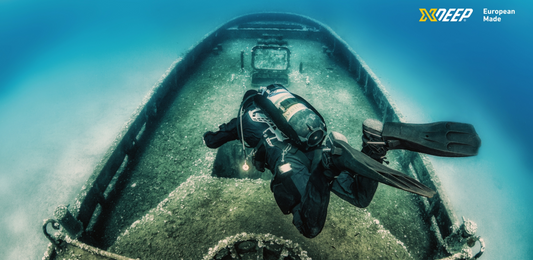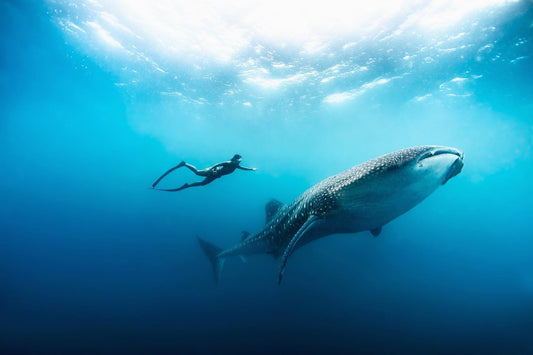
Pressure related problems are the most insidious because they are not visually apparent. Going deeper than you planned could mean the invisible ceiling of the mandatory decompression-stop. That could mean it takes longer to get to the surface than you anticipated. Going deeper than you planned could mean your air supplies don't last as long as you might have expected. Remember, your air at 30 metres deep lasts only half as long as it does at 10 metres.
It's down to you to take control. Do you feel that the planned dive is beyond your capabilities? Say so. Don't let peer pressure influence you. Don't get dragged unwillingly along by the enthusiasm of the group. Bravado is misplaced on a dive deck. Adjust the plan to suit you and get prior agreement from your buddy. Deep underwater is no place to try to discuss these matters. So set your own limits and set limits you are happy with.
The dive may be deeper than you feel comfortable with. You may decide that, considering the size of tank you and your air-consumption, you'd like to try a dive that is less ambitious. Is the current too strong for you liking? Would you prefer to drift with it while your buddy plans to swim against it? Are you unhappy about a plan to penetrate a wreck? Would you prefer to look at it from the outside only? Are you happy with the arrangements for getting picked up after you surface and back on the boat? Is the surface of the sea too rough for your liking? It's very easy to let the parameters of another's performance influence you at the planning stage but once you are underwater reality strikes.
Things start to go wrong and your heart rate increases. You find you are working too hard. You start to breathe quicker and quicker. There is nothing more likely to increase your air consumption than the realisation that you are running low on air! Hyperventilation leads to panic.
The first thing you must do is calm down. Think carefully and act accordingly. Don't do anything in a rush. Panic can have dire consequences. Your pressure gauge is in the red section but you need to make a safety stop at five metres deep. Stay calm. If you are neutrally buoyant, you are only a few fin strokes from fresh air. Breathe normally. You'll be surprised how long the remaining few bar of air in your tank will last in the shallows, and next time you'll be sure to never put yourself in this predicament. As you accrue more time underwater you learn more about scuba diving. Once you are at the surface keep your mask in place and inflate your BC orally if necessary, and relax while you wait to be picked up or take you time to swim to the boat or shore.
For those of us who are experienced, some of these experiences have not been so good, but we have always learned from them.
Happy Diving - John Bantin



